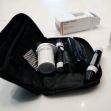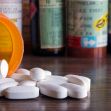The state of Arkansas is suing several drug manufacturers and pharmaceutical benefits managers over accusations that the companies are violating the state's deceptive trade practice laws. The accusations detail that the plaintiffs inflated the price of insulin for diabetics by conspiring in a manner that best benefited them instead of the patients they served.
Attorney General Lesley Rutledge filed the lawsuit in state court earlier this month. In the lawsuit, drug manufacturers Eli Lilly, Sanofi, and Novo Nordisk are named as plaintiffs. They are accused of conspiring with pharmacy benefit managers including Express Scripts, Caremark, and Optum. These pharmacy benefit managers are also named in the suit.
The complaint accuses all the plaintiffs of conspiring together to purposefully inflate the price of insulin. As a result, a portion of the inflated cost was paid out to the pharmacy benefit managers and other associated parties.
The lawsuit explains that the named pharmacy benefit managers played a crucial role in controlling consumer pricing for the drug in part because they control 80% of the market. The complaint explains that because of the market power at play, the pharmacy benefit managers “wield enormous control over drug prices and drug purchasing behavior in Arkansas.”
The price of manufacturing insulin, which costs less than $2 to make according to the complaint, has gone up substantially over the past decade and a half. It was originally priced at $20 when it was initially released in the late 1990s. Today, the same dosage can cost anywhere from $300 to $700.
The Arkansas lawsuit points to a 2019 congressional hearing in which an executive from Eli Lilly testified that 70% of the “list price” of insulin drug Humalog (which was $210 at the time) was paid out to the middlemen or pharmacy benefit managers.
The lawsuit details that the drug companies and pharmacy benefits managers involved in the scheme inflated the price of the drug in an “astounding manner.” As a result of the inflated price, Rutledge contends that diabetics and those in need of insulin were the ones left to suffer.
The lawsuit details, “For these Arkansas residents with diabetes, the physical, emotional, and financial tolls of paying such excessive prices for diabetes medications is devastating.” The lawsuit goes on, “Unable to afford the drugs their doctors prescribe, many diabetics in Arkansas ration or under-dose their insulin, inject expired insulin, reuse needles, and starve themselves to control their blood sugars."
The price of insulin has been at the center of debate for quite some time now across the nation. In a similar lawsuit filed last year in Mississippi along with class-action suits filed in other states, manufacturers have been accused of conspiring with other parties that stand to benefit by driving up the price of insulin to turn a higher profit.
The profit is typically paid out to pharmacy benefit managers in the form of rebates or discounts. The lawsuit in Arkansas contends that because this scheme financially benefits both the drug makers and the pharmacy benefit managers, the fact that it was done in secret resulted in a direct violation of the state's Deceptive Trade Practices Act.
The lawsuit in Arkansas is seeking a $10,000 fine for every violation of the state's law on deceptive trade practices. The lawsuit is also seeking restitution and punitive damages against the plaintiffs.






